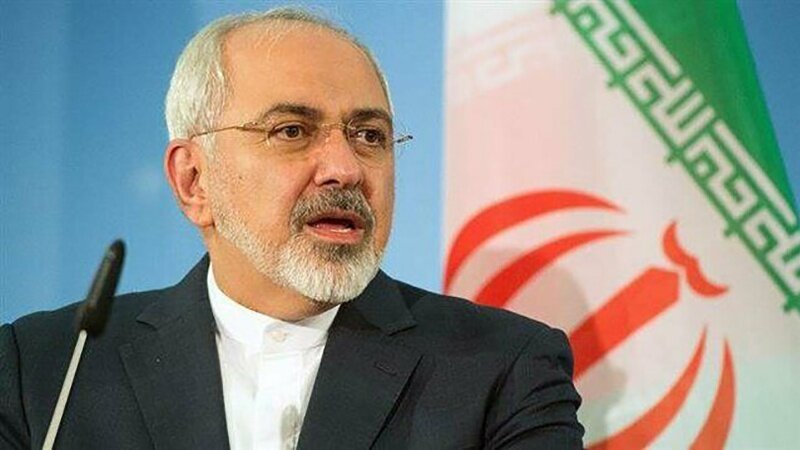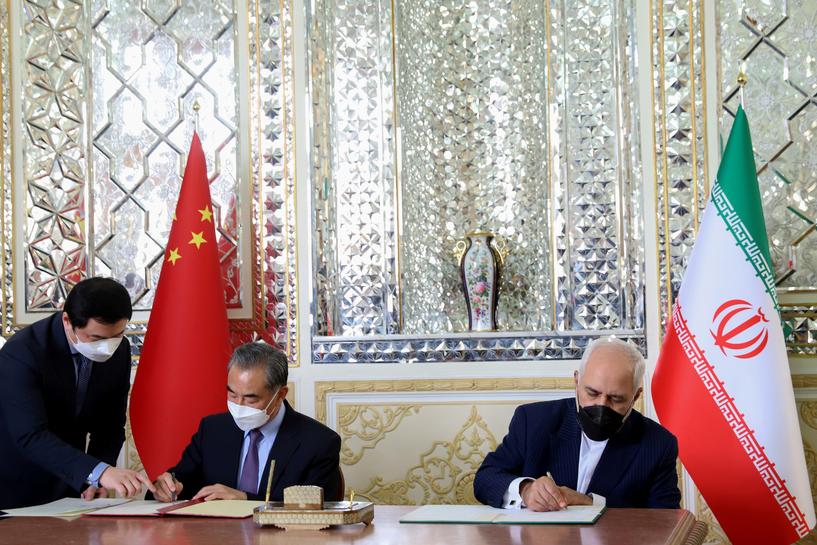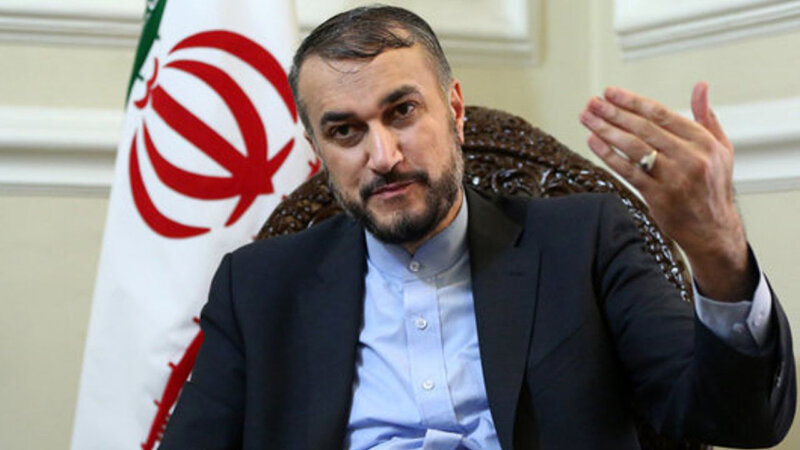By Katya Mavrelli,
The replacement of Mohammad Javad Zarif as Iran’s foreign minister by Hossein Amir-Abdollahian can mean only one thing: Iranian foreign policy will never be the same again. Given the change of the face of the current administration, and the priorities that Ebrahim Raisi has already dictated, the deviation from the foreign policy actions that we once knew is a given.
Mohammad Zarif had come to be known as Iran’s secret weapon, the element that would make a difference if all else failed. His impeccable English, his background in international relations, and his degree from American institutions, as well as his caustic yet accurate remarks, have allowed him to become known as one of the most skilled politicians of the Iranian scene. His maneuverings on the topic of the Iranian nuclear deal allowed him to be known —and now remembered— as the man that will help Iran rise out of its ashes again.

Now, the scene will be dominated by Hossein Amir-Abdollahian, a career diplomat. With a degree in international affairs from the School of International Affairs at the Iranian Foreign Ministry and a clear focus on the relations of the U.S. with the Middle East, Amir-Abdollahian is set to change the development of Iranian politics as we know it. His fluent Arabic skills have allowed him to become deeply involved in regional politics and write academic analyses on the political developments in the Levant. He, too, is a proponent of the Negah Beh Sharq foreign policy orientation, a policy that has been in place since the beginning of Ahmadinejad’s presidency in 2005 and stresses the importance of “Looking to the East” as a central tool of decision making.
As a Deputy Foreign Minister for Arab and African Affairs, he has become increasingly involved in the developments of the region and knows that day-to-day events need to be handled with delicacy and strategical thinking. Taking part in the 2013 nuclear program negotiations further enabled him to get to know the power relationships of the west.
Amir-Abdollahian is in favor of a policy that is more in line with Chinese interests and priorities than Western ones. Given that Iran is located near the heart of Asia, he believes that it must “redefine its relations with influential countries”. Such statements have only drawn the Chinese closer, especially after the signing of the 25-year strategic agreement in March. The Comprehensive Strategic Partnership signed between Zarif and the Chinese foreign minister Wang Yi is yet another example of China’s continuous development of the “One Belt, One Road” initiative, which has embraced the Middle East in particular.

The appointment of Amir-Abdollahian should be regarded in the wider context of the Iranian nuclear deal and the Iranian disillusionment towards the West regarding the Joint Comprehensive Plan of Action in 2015. He has systematically expressed his disagreement with the stance of the West, as regards the compensation of Iran after the Trump administration withdrew from the JCPOA in 2018. He also believes that the attitude of the West and their “niceties” can no longer be disregarded, especially now that we are entering a particularly delicate period with regards to recent developments in the energy and oil sector.
Taking his background and experience into consideration, Amir-Abdollahian is expected to turn Iran’s attention towards the East. Given his close ties to the Islamic Revolutionary Guard Corps as well as the “Axis of Resistance”, the alliance between Iran, the Assad government, and the Lebanese Hezbollah, all eyes have turned to his next steps in the region. The age of delicate maneuverings and concealed political actions seems to be over now that Zarif is departing from the central stage. His successor seems to be willing to pursue a path along the lines of diplomacy and determination.
References
- Deutsche Welle, Iran Parliament approves new foreign minister, cabinet, Available here
- Najmeh Bozorgmehr, Iran’s president picks hardline diplomat as next foreign minister, The Financial Times, Available here
- Najmeh Bozorgmehr, China and Iran sign 25-year agreement to expand ties, The Financial Times, Available here




